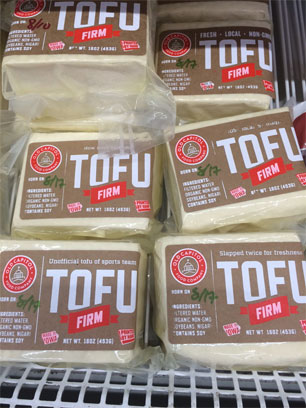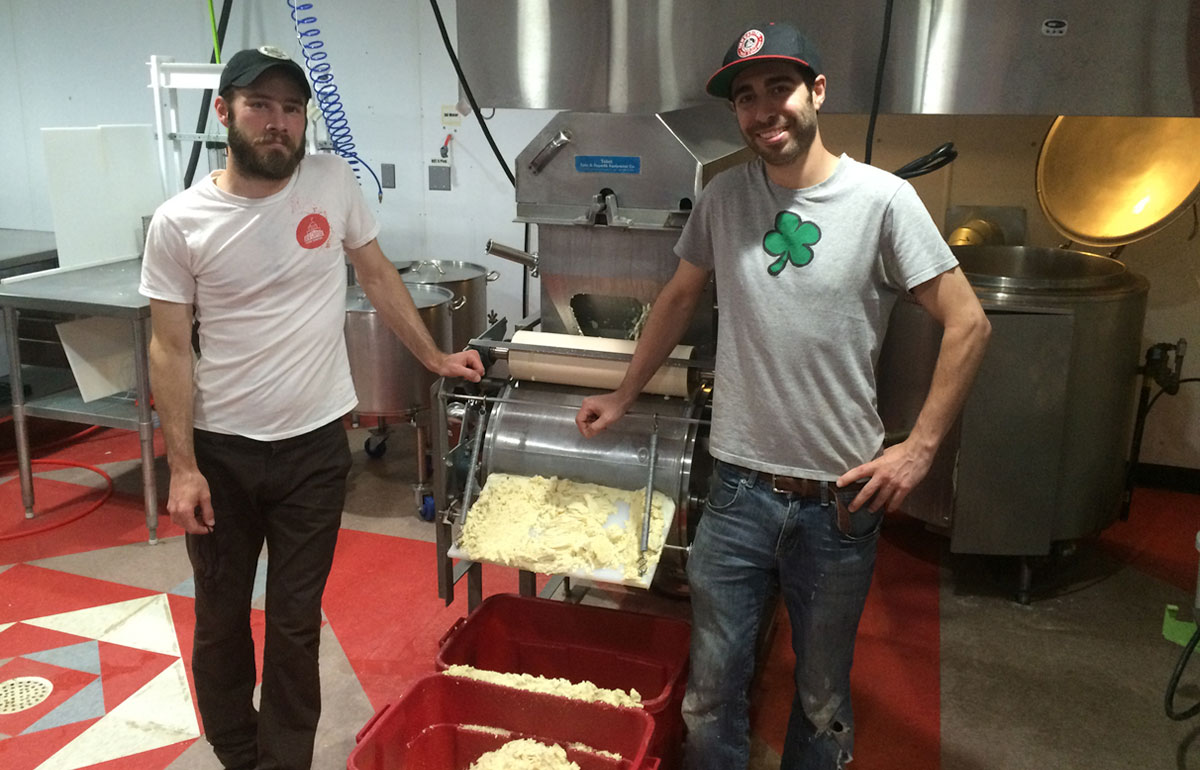When people think of fresh, locally produced foods, tofu doesn’t usually come to mind. But two Iowa entrepreneurs want to change that perception. Jake Gratzon and Matthew Mesaros, owners of Iowa City-based Old Capitol Food Co., are making and selling fresh tofu from Iowa organic soybeans and selling it to local restaurants, stores, and universities.
Gratzon says his business is filling a needed niche. “People who eat tofu are those who value local fresh organic ingredients. We thought we could combine those concepts,” he says. “Tofu is so much better when it’s fresh, and our product is meant to be fresh.”
“Start a business that people would gain value from”
Gratzon and Mesaros, both millennials, got the idea to start their tofu business when they were students at the University of Iowa.
“We wanted to start a business that was going to be simple and that people would gain value from,” Gratzon says. “We wanted to supply a good example of the type of food that should be created and do something for the community.”
The two entered the University of Iowa Business Model Competition in the spring of 2014; they finished in third place and won $3,500, which they used to help start the business. They later received additional seed money through the university’s John Pappajohn Entrepreneurial Center.
In late 2014, the two budding entrepreneurs built a small but efficient workspace for tofu production in an industrial park in Iowa City. They started full production in July 2015.
Multi-step process
Making tofu is a multi-step process that requires sharp attention to detail. The soybeans are first soaked for 16 to 24 hours, which helps to achieve the right protein level. The beans are then ground and added to water and boiled for 10 minutes. An extraction process then separates the okara or seed coating from the soymilk. Salt is then added to the soymilk to separate it from the protein, creating a pudding-like curd. The process is similar to making cheese. The tofu curd is then put on a press where it is cooled, and then cut into three-by-four inch blocks. Finally it is packaged, and the production date is written on the package to indicate freshness.

Old Capitol Food Co. tofu packages with production dates to indicate freshness.
The packaged tofu is delivered by truck to Old Capitol Food Co.’s growing list of Iowa City customers, including New Pioneer Co-op, several City restaurants and University of Iowa dining halls, as well as natural food stores in Ames and Fairfield. They will also soon supply a university in Fairfield.
Customer reaction has been very positive. “We hear that we make the best tofu our customers have ever had,” Gratzon says. “Our customers are buying more and more quantities so we need to increase production.”
Made from Iowa soybeans
Gratzon and Mesaros like to promote the fact that they use Iowa soybeans to make their tofu. “Iowa is well known for soybeans, and Iowans can connect with this,” Gratzon says.
They buy about a ton of organic soybeans each month from Stonebridge, Ltd., an Iowa-based soybean supplier. The soybeans are grown on an Amish farm in Hazelton, Iowa.
“We always like working with start-ups especially on the soy food side,” says Tim Daley, production agronomist at Stonebridge. “We’re close by and they can pick up the beans. They seem to be doing well.”
Old Capitol Food Co. is in the process of becoming certified organic, something they see as important.
“We want to be as pristine as possible and that includes being organic and non-GMO,” Mesaros says.
Expansion plans
For now, Gratzon and Mesaros are doing everything—from building their workspace and making tofu to designing package labels and delivering the finished products to customers. But that may have to change as they grow.
And the two entrepreneurs plan to expand—into other foods, such as humus, and even other regions. “We want to stay local but can see expanding to other regions to replicate the concept,” Gratzon says. “We think we have a lot of good ideas to go into the company and a lot of passion.”
“We straddle the line between a small operation and large-scale factory production,” Mesaros says. “We want the best of each: the cost savings while maintaining the personal touch of a tofu maker on the streets of Beijing.”
Old Capitol Food Co. reminds Tim Daley of another tofu company that started with humble roots in the late 1970s. Back then, hippie entrepreneur Steve Demos used a $500 loan to make and sell tofu in a tiny shop in Boulder, Colorado. Demos grew his business, White Wave, into an industry leader in soy food products.
“Who knows this could be the next White Wave,” Daley says.





